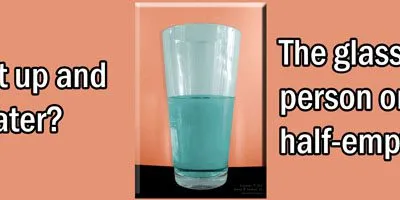Best Service or Best Price: Which Reigns Supreme?
Posted on04 Oct 2010
Tagscompetition, buying habits, business, branding, assumptions, article, Are You Being Served, customer service, customers, emotions, intuition, James Surowiecki, luxury, market, premium, price, product, quality, status, subjective, survey, The New Yorker
Comments0
In the article, “Are You Being Served?”, in the September 6, 2010 issue of The New Yorker, the author James Surowiecki cites... Read More
What Consumer Psychology Teaches Us About Problem Solving
Posted on27 Sep 2010
TagsHow Concepts Affect Consumption, business, buying habits, change, cognition, competitive, consumer, cost-benefit, Dan Ariely, decisions, drugs, emotions, expectations, goal setting, Harvard Business Review, brain, intuition, keeping up with the Joneses, low-cost, Michael I. Norton, objective, peer pressure, people, price, problem solving, psychology, rationale, rewards, teach, anticipatory, beverages
Comments0
We often anticipate and rationalize people’s decisions using a cost-benefit analysis. This perspective frequently leads to erroneous conclusions and restricts problem-solving capabilities.... Read More
Arbitrariness: The Cornerstone of Conditions
Posted on23 Sep 2010
Tagsassumptions, arbitrariness, absolute, build, intuition, third, subjective, second, question, problem solving, perspective, Personality, numbers, knowledge, Influence, house, first, evalute, emotions, democracy, decisions, conditionality
Comments2
Arbitrariness & First, Second, Third Arbitrariness is vital to intuitive problem solving because it’s related to subjectivity which is related to personality... Read More
The Words “Feel” and “Think” as Tools
Intuitive approaches require the identification of emotional drivers in influencing and problem solving. They generally work better than cognitive approaches because emotional... Read More
The Success of Failure and the Failure of Success
Posted on16 Sep 2010
TagsAcademy of Management Journal, anticipatory, decisions, emotions, employees, experience, failure, fear, feelings, flexibility, gain, history, intuition, joy, learn, legitimate, lesson, logic, mistakes, objective, organization, pain, perspective, Peter M. Madsen, planning, profitability, rationale, success, The Economist, Vinit Desai
Comments7
How many times have we heard, “Nothing breeds success like success?” In a study of the orbital launch vehicle industry by Peter... Read More
The Rise of Intuition
Posted on09 Sep 2010
Tagswants, unknown, uncertainty, biotechnology, advancements, BNET Blog, knowledge, sensors, scientific, sales, rationale, Psychology Today, nanotechnology, management, leadership, intuition, Influence, illusion, feelings, emotions, decisions, communications, cognition
Comments1
The other day a colleague forwarded this link to the BNET blog speaking to intuition. Embedded in it was a link to... Read More
Managing Complainers At Work By Taking A Positive View
Posted on23 Aug 2010
Tagsventing-wetsuit analogy, Josuf Breur, medical, anxiety, Atul Gawande, Danger Zone, emotions, Sigmund Freud, hospice, Kenny Loggins, law, Performance, Personality, pressure, secretary, Talent, talking cure, The New Yorker, Top Gun
Comments3
Employees complain. In most firms that makes them complainers. That makes problems for managers. The key though is managing complainers at work... Read More
Glass Half Full Or Half Empty, Who’ll Go Get More Water?
Posted on12 Aug 2010
Tagsassumptions, attitude, change, emotions, fear, gain, glass, joy, loss, metaphor, perspective, problem solving, sales, glass half full-half empty metaphor
Comments9
People use the glass half full or half empty metaphor in many ways. I use it much in problem solving workshops. For... Read More
Difference Between Instinct and Intuition in Decisions
Often, I’m asked about the difference between instinct and intuition. Part of what makes the question hard is gender bias. Men prefer... Read More




